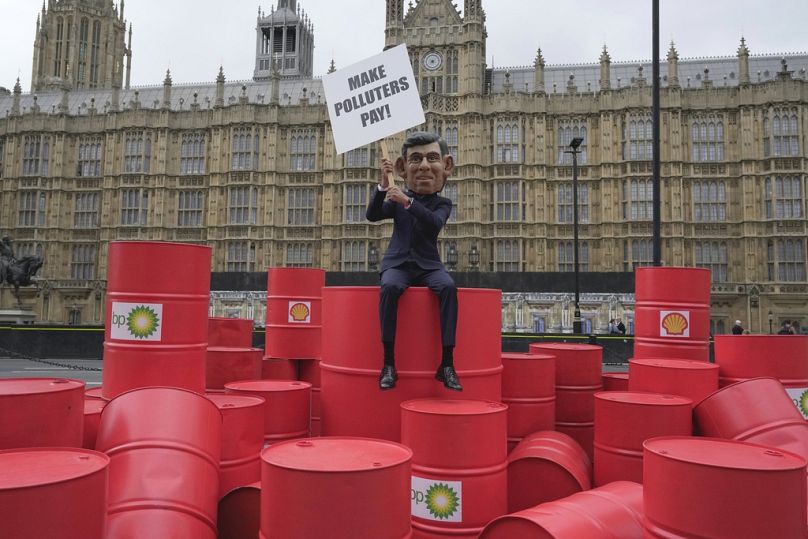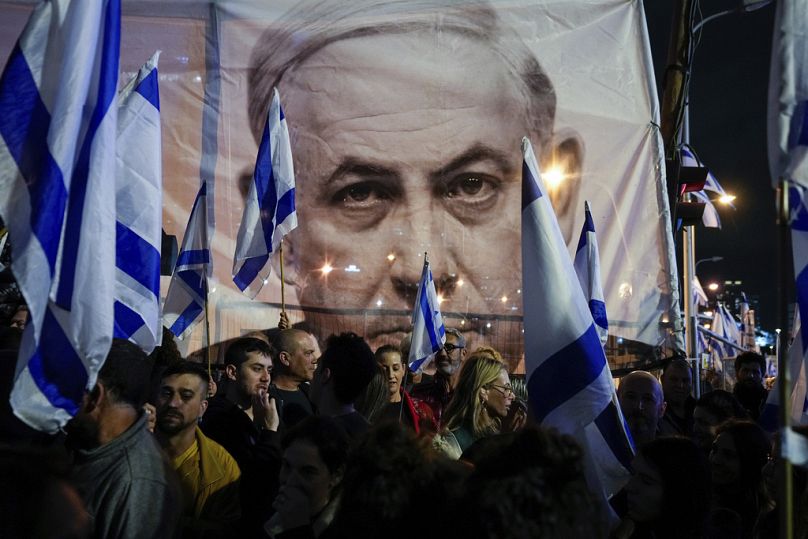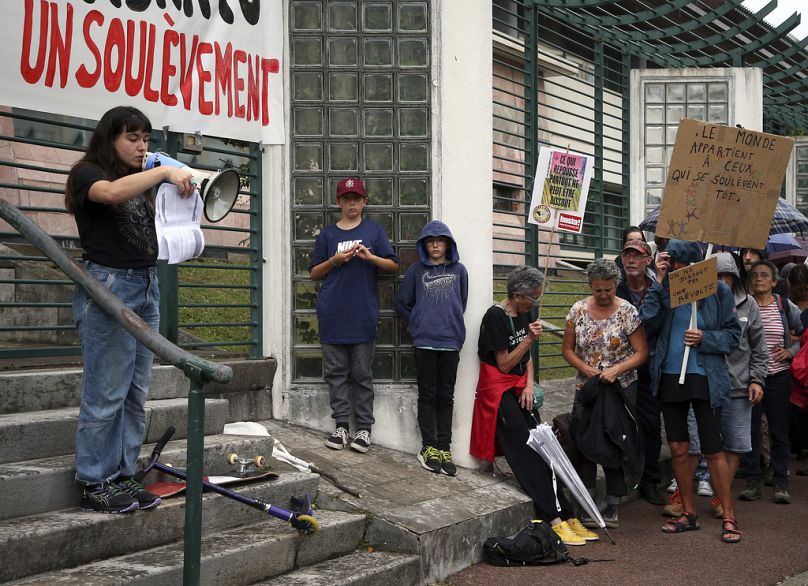From Germany and Sweden to the UK earlier this month, Greta Thunberg has now been prosecuted in a hat-trick of countries in 2023. Her court cases are indicative of governments increasingly cracking down on the right to protest, Barney Cullum writes.
The names of those nominated for the Nobel Peace Prize are kept confidential for fifty years under a historic convention.
 ADVERTISEMENT
ADVERTISEMENT
 ADVERTISEMENT
ADVERTISEMENT
Mahatma Gandhi, arguably the world's most renowned peaceful protester, was recognised five times for non-violent resistance to colonial rule. The Indian lawyer was never awarded the prize, so confirmation of his nominations was only shared after his death.
We have to wait a further forty-five years for affirmation that Greta Thunberg was nominated for her school strike for climate in 2018.
Some believe that she has been nominated every year since then, which is just one of many reasons why we should be alarmed by the criminalisation of her acts of defiance this year.
Marching for climate change is now a crime?
From Germany to Sweden and then to the United Kingdom earlier this month, Thunberg has now been prosecuted in a hat-trick of countries in 2023.
Each time, the 20-year-old has faced censure for further raising awareness of a cause that all three only formally recognised as an emergency after she first skipped school to hold a banner outside the Swedish parliament in August 2018. The European Union and United Nations Secretary-General António Guterres followed suit.
First Wales, then Scotland, then the UK made their places in history as the game-changing governments that declare climate emergency — again only after the interventions of Thunberg and her occasional partners, Extinction Rebellion — but the UK has begun routinely silencing climate defenders in recent weeks.
Thunberg represents one of more than 500 climate activists arrested in London over the last month after police began making first use of new powers labelled “troubling” by the UN's human rights chief.
In one of her last acts as outgoing home secretary, Suella Braverman independently approved legislation previously thrown out by parliament freeing officers to detain road marchers.
It's this act — slow marching — that has led to the majority of the detentions.
A democratic right and a good first step toward change
The humble march has previously been recognised in most civilised societies as a legitimate exercise of the right to freedom of expression. Marching may not always lead to change, but reform out of this way of resistance does arrive more often than is sometimes understood.
While the UK has been busy arresting hundreds of protesters over the last few weeks, the same period has seen still-legal peaceful marching in the Netherlands to persuade politicians to scrap fossil fuel subsidies once and for all.
Non-violent civil disobedience achieves social change far more than it is sometimes credited for.
In Israel earlier this year, hundreds of thousands took to the streets every month to successfully stall the proposed neutering of the country's supreme court.
The significance of this victory for the rule of law may only be fully realised as the coming weeks unfold, with the country prepared for “a long war”.
While the future of the Middle East remains uncertain, what is already clear is what international societies can expect other nations to follow the UK in criminalising the right to protest, including the right to march.
Dystopian future awaits
Societies will have to face up to a future where coming out onto the streets to assert your opinion, whether for climate action, upholding the rule of law, or even championing the preservation of human life, may potentially become freedom of the past.
France has already banned outright a climate group called "Earth Uprising", a movement of more than 100,000 members. This is being challenged in courts and if the ruling is overturned, the country could follow the UK in introducing legislation to prevent road disruption specifically.
Élysée has already shown it is not afraid to risk the wrath of rights defenders, prohibiting all marches in connection with support for Palestinian civilians.
France's stance on outlawing Palestinian solidarity was described as a “serious and disproportionate attack on the right to demonstrate” by Amnesty International.
In Britain, Braverman lost her job after calling such gatherings “hate marches”, conflating the actions of a tiny minority with those seeking a ceasefire to preserve civilian life.
And yet, despite Braverman's exit, the UK government is now considering further extending police powers to ban marches.
We need to preserve our right to defend the right cause
Observing the contrast seen in the enduringly liberal Netherlands with the politics playing out in France and Britain shows that Europe is divided on whether to preserve the right to protest, whether that be in the name of preserving our natural environment or human life — or both.
And the problem is not confined to Europe, as violent crackdowns seen in countries ranging from Uganda to Mexico recently have underlined.
Whatever social or environmental cause it is we've been defending during this autumn of activism, we must all fight to preserve the right to keep defending it.
Otherwise, the right to do so may be gone for all of us well before we ultimately discover just how many times Thunberg was once prized for her acts of protest.
Barney Cullum is a journalist who has covered international social issues from more than 20 countries for outlets including New Internationalist, openDemocracy and UnHerd. He is the author of "Making a Movement: With the Disruptors Driving Social Change Around the World".
At Euronews, we believe all views matter. Contact us at view@euronews.com to send pitches or submissions and be part of the conversation.













